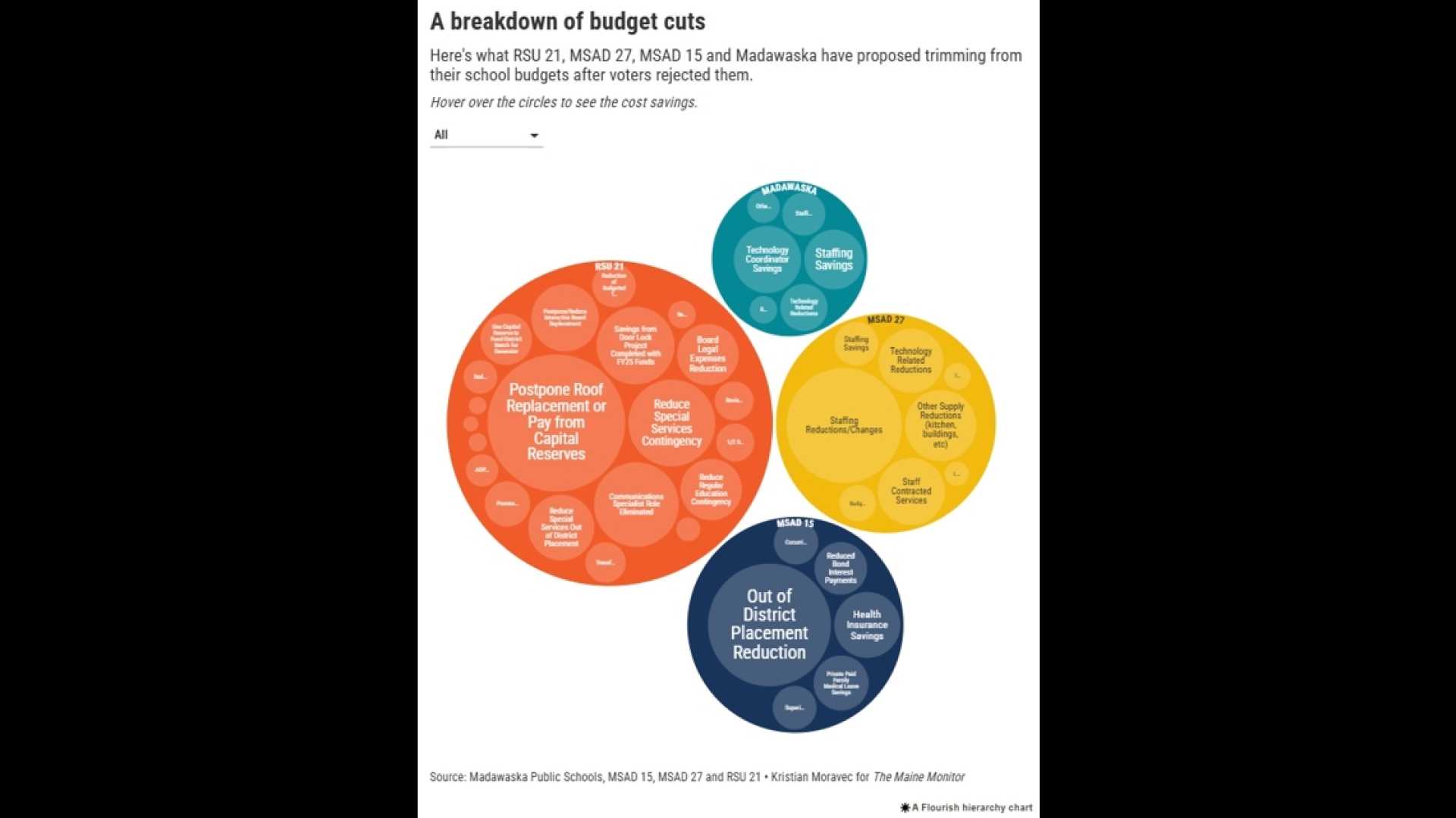Education
Maine School Funding Formula Faces Calls for Change

ROCKPORT, Maine — Advocates are urging reforms to Maine’s school funding formula, which local leaders claim does not consider residents’ ability to pay taxes accurately. Camden Hills High School Superintendent Maria Libby highlighted the disparity in state funding, stating that her district is a minimum receiver.
Libby, who has served in Camden-based school districts for 28 years, expressed gratitude for voter support of school budgets but acknowledged the significant tax burden on local residents. “I am painfully aware of the implications of what we’re doing on taxpayers,” she said.
Currently, some districts receive up to 80% of their funding from the state, while others receive none at all. Libby’s district, School Administrative District 28, has received no state funds, and the Five Town Community School District only receives 17% due to high property values in coastal areas.
A recent report from a nonpartisan research group outlined the challenges of the existing formula, created in 2004. The report calls for reevaluation as it fails to distinguish between town-level wealth and individual homeowner capabilities. It notes that despite a decrease in K-12 enrollment by 19% from 2001 to 2023, education spending has doubled, leading to further funding inequities.
Kerry Leichtman, town assessor for Camden and Rockport, said property taxes have surged 44% in one year, putting financial strain on residents. With no state education subsidy for years, they’ve just started receiving a minimal 1.7% this year.
Other communities, such as Brunswick, which gets 47% of its funding from the state, are able to cope better due to supportive local governance. However, Superintendent Phillip Potenziano acknowledges community concerns over rising taxes.
The report suggests incorporating an “income-based ability to pay” measure to enhance the formula’s equity, potentially modeling it after systems used in Rhode Island. Recent proposals aim to ensure no district is left disadvantaged by funding changes.
Rep. Michael Brennan, D-Portland, is leading efforts to further study the funding formulation, focusing on regional adjustments and special education needs. He is optimistic the new energy from lawmakers may lead to actionable solutions.
The research team is evaluating two new funding models that could distribute state funding more progressively, showing no district losing funding under these scenarios, according to Johnson.












